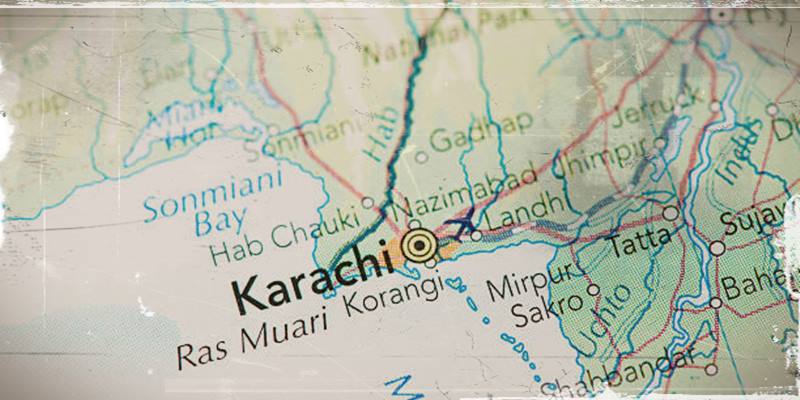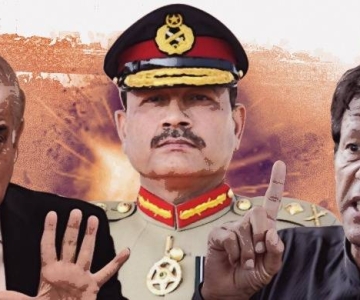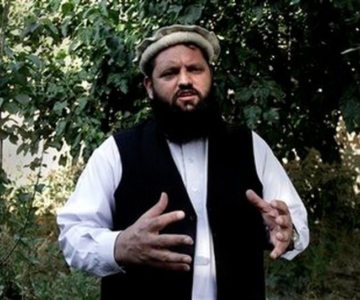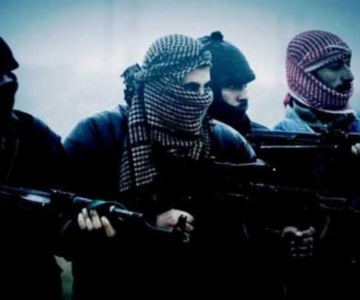The Pakistani Taliban has claimed responsibility for the attack on Karachi airport, that’s killed at least 28 people, including the ten suicide terrorists.
The militant group says the attack was in revenge for the killing of their leader Hakimullah Mehsud, who died in a US drone strike last year.
The United States has offered to help Pakistan in investigations, but it’s not clear if the offer will be taken up.
So what has led to this huge security lapse in Pakistan’s biggest and most violent city?
Presenter: Sen Lam
Speaker: Raza Rumi, Pakistani journalist, columnist, blogger and consulting editor for the Friday Times
RUMI: Karachi is Pakistan’s largest urban centre, where the writ of the state has been withering over time. And you have, as a result, nearly one-third of the city functioning as a stateless zone where private militias, extremist organisations rule the roost and control affairs. So in such a situation, it is easy for sleeper cells or other terrorist networks to breed and exist. And this is what’s happened, that they perhaps were there for some time and had local intelligence, and they managed to breach the security of an otherwise well guarded airport.
LAM: This attack appears to be quite well coordinated. So how did the militants manage to bypass Pakistani military intelligence?
RUMI: Well I think the airport has both civilian and military intelligence, and frankly, this must not have happened without some sort of inside assistance from low level staff, because the earlier examples, such as the one in 2011 when a naval base was attacked and two expensive fighter planes were set to fire, the militants had some sort of inside support and help. They have penetrated many institutions like there where they go and either they buy information or they get ideological partners, and that makes their job for carrying out such wild attacks easier.
I think it’s not the military here, let me clarify, the airport has a civilian security force. It is like a regular special police, and that is the key agency responsible for the security of airports. It’s pretty good, it’s pretty tight, and slowly, they (the terrorists) must have either penetrated that .. and then you have several companies at the airport, such as cargo company, such as the airline staffers and many others, because the airport are pretty complex systems in themselves.
LAM: The Pakistani military intelligence, the ISI, is well known for being quite effective. So how did they not manage to detect this on their radar, that the Taliban is planning such a massive attack?
RUMI: Yeah, I think this is an important question and it is being raised in Pakistan as well as to this huge intelligence failure or lapse that occurred.
But you see, the problem here is that Pakistan’s premier intelligence agency itself has been a victim of these terror networks. Many of their offices in recent years have been actually blown up by suicide bombers, and also the general headquarters of the military was attacked nearly five years ago, where they did bring it under siege for many hours in a similar operation until they were hunted down and cleared and killed.
So this is not an unusual development. The problem is that some of these terror networks have grown exponentially and now receive some sort of patronage, particularly the Pakistani Taliban from the Afghan intelligence agency. The current chief, disputed chief of the Pakistani Taliban is actually based in Afghan territory in Kunar province, where according to media reports he has some sort of support from local authorities. So in that case, a space to operate from, enables these attacks to occur more frequently against the Pakistani state, which includes the intelligence agency.
LAM: A Taliban spokesman said the attack aimed to damage the civilian government and also threatened to hijack planes, destroy state installations – Does Pakistan have to brace for more violence?
RUMI: Well you see what has been happening in the recent past that the Pakistan civilian government was trying to negotiate with the Pakistani Taliban, as in finding a way where peace could be established and some of their demands could be met, et cetera. But those talks just two weeks ago, disintegrated and there was a split within the Pakistani Taliban.
So yes, these attacks come in the wake of the military’s resolve to strike in north Waziristan, in the recent weeks there have been air strikes against terrorists outfits and havens there. So many people view this as a response or a reprisal attack, and also a message to the Pakistan government that if they continue with a full fledged military operation, then such attacks would be more frequent in major Pakistani cities.
And so this is now a challenge for the government, how is it going to deal with the militancy and the possible fear of reprisals by the militant outfits.



